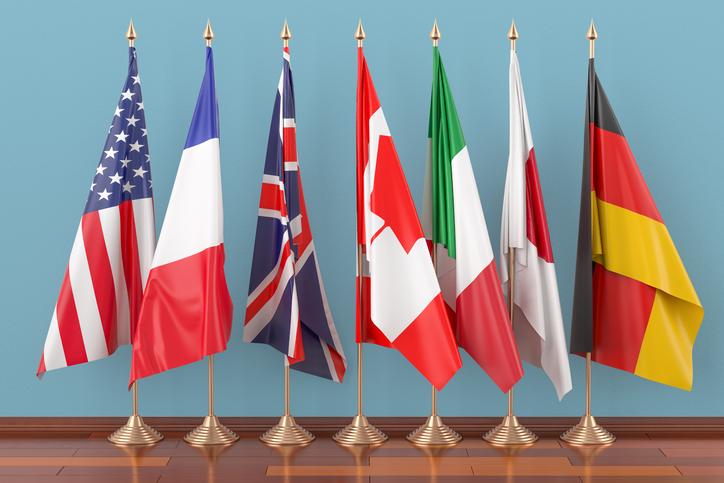Trump at G-7 summit: What you need to know
President Donald Trump will head to La Charlevoix, Quebec, on Friday, for a two-day Group of Seven (G-7) summit meeting, as tensions between the administration and its key allies worsen.
The leaders of both France and Germany have already stated that they will not sign a joint statement at the conclusion of the summit unless President Trump makes some concessions on key issues, including language related to the nuclear accord with Iran.
Members of the G-7 include the U.S., Canada, the U.K., Japan, France, Italy and Germany. The European Union (EU) also attends.
Here are some key issues likely to arise during the two-day meeting in Canada:
Trade
G-7 members are likely to take the opportunity in Quebec to address economic concerns with President Trump, as many of the countries are impacted by recent trade policy decisions the administration has made.
Canada and members of the EU, for example, recently fell victim to the U.S. steel and aluminum tariffs, and both have vowed to retaliate. Italy, France, Germany and the U.K. are members of the EU. Japan is also subject to the levies.
Trade ministers and politicians from multiple countries have voiced opposition in the media to the tariffs ahead of the G-7 summit, and have indicated they may band together to push the U.S. president to reverse his decision.
National Economic Council Director Larry Kudlow told reporters on Wednesday that the president was aware of disagreements over trade, but he said the country’s chief executive was “sticking to his guns.”
While trade is not officially on the agenda of the G-7 summit, there is a theme called “economic growth that works for everyone.”
North Korea
President Trump will head to Singapore next week for an historic summit with North Korean leader Kim Jong Un, where he will address the rogue country’s controversial nuclear program. French President Emmanuel Macron said members of the international organization will stand behind Trump in his efforts to promote the denuclearization of the peninsula.
However…
Iran nuclear deal
When it comes to nuclear programs, some of the G-7 allies stand in staunch opposition to the Trump administration’s current position on Iran.
Earlier this year, President Trump announced that the U.S. would withdraw from the Iran nuclear agreement, which has sparked backlash among allies. The Iran deal included Germany and the United Nations Security Council, of which the U.K. and France are permanent members.
European countries, including France, Germany and the U.K., have said they will continue to uphold the deal without the United States’ inclusion, and leaders across the globe have criticized Trump’s decision to pull out.
Climate change
Another point of contention for President Trump among his G-7 counterparts could be climate change, which is one of the main focal points of the G-7 summit.
Trump pulled out of the Paris climate accord in June 2017, asserting that it was unfair to Americans. At the time, he mentioned he was open to renegotiating the pact, but other members expressed resistance to that idea.




















